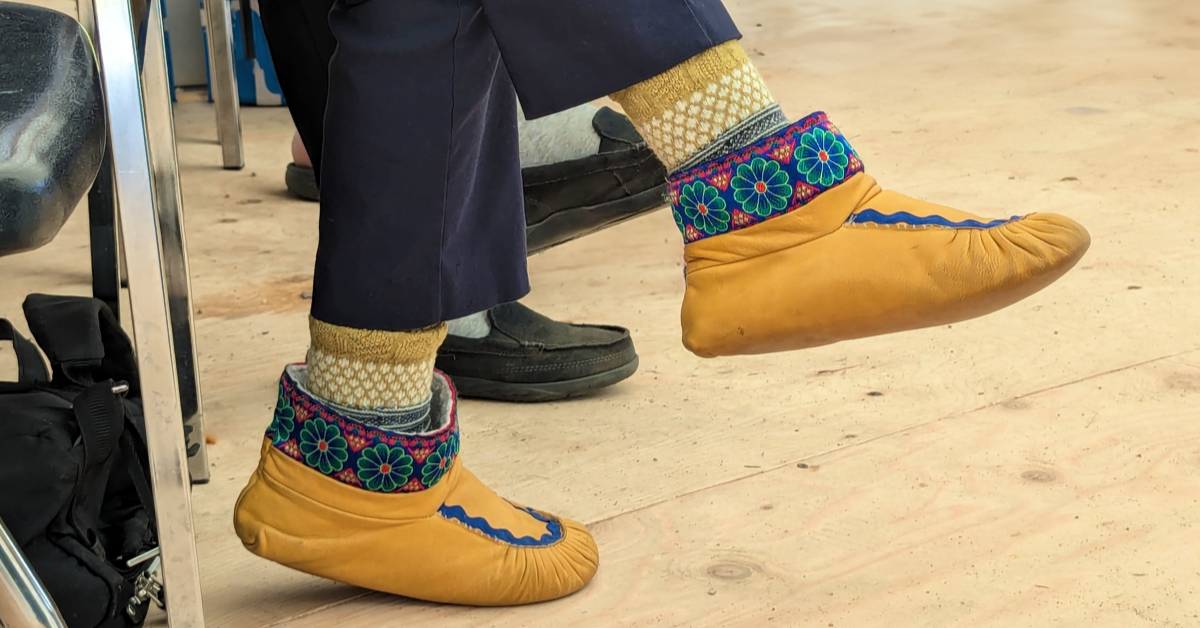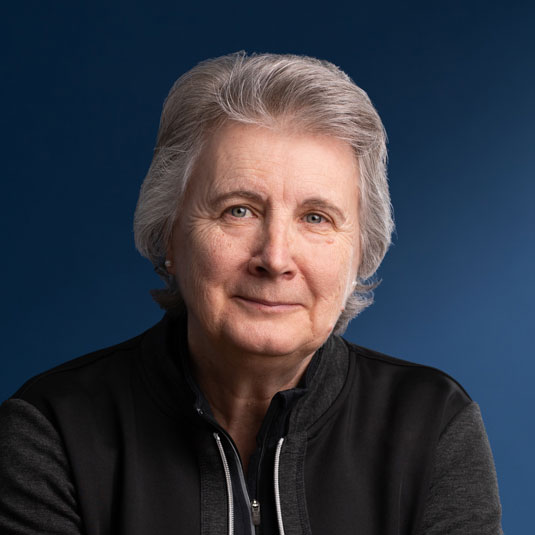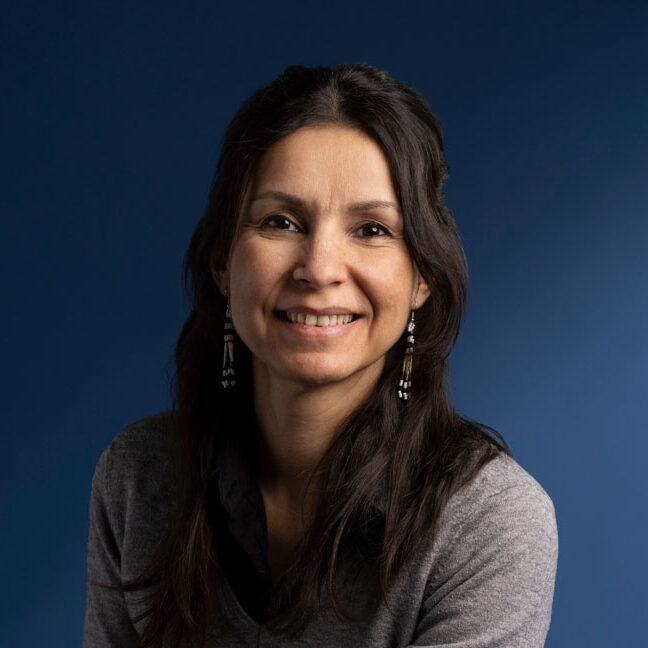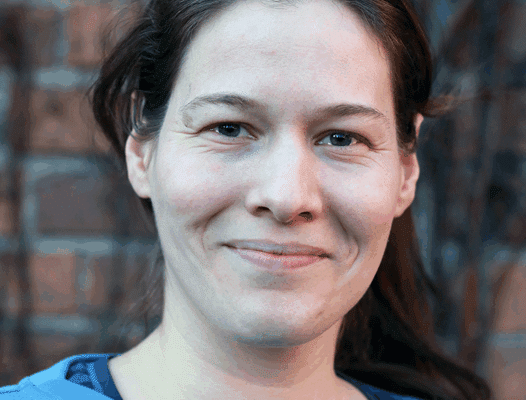- Academic Life
The knowledge-sharing event featured a week of discussions, presentations, performances and storytelling at Shipit.

Photo : Réseau DIALOG
For its 19th edition, the Université Nomade brought together more than fifty people from all over Quebec to share the memory and knowledge of a people. The theme this year was “Raconte-moi le territoire – Tipatshimushtu ne nutshimit” (“Tell me about the land”). The event, which took place from June 16 to 21 at Shipit on the territory of the Innu First Nation of Uashat mak Mani-utenam, ended with a celebration to mark National Indigenous Peoples’ Day.
The Université Nomade is run by the Réseau DIALOG, an organization based at the Institut national de la recherche scientifique (INRS). This event is the result of an ongoing collaboration with ITUM (Innu takuaikan Uashat Mani-utenam) and the Université du Québec en Abitibi-Témiscamingue (UQAT).
The event’s interactive, participatory structure promotes the sharing of Indigenous and academic knowledge around societal issues. Each year, activities bring together researchers, students, specialists from different backgrounds, leaders, and Indigenous knowledge holders.
Students accounted for more than half of the attendees; they were accompanied by Professor Carole Lévesque, head of the Réseau DIALOG; INRS professor Nancy Wiscutie-Crépeau; and UQAT professor Sébastien Brodeur-Girard. They are members of the INRS-UQAT Joint Research Unit in Indigenous Studies.

“Once again, the Université Nomade has achieved its learning, training and knowledge mobilization objectives. The formula remains unique as it favors the encounter of different knowledge systems and strives to create conditions conducive to sharing and active reconciliation.”
Carole Lévesque, Professor at INRS
“The Université Nomade is much more than just an academic event; it’s a profound human experience that strengthens intergenerational ties. The elders pass on lessons to the students as well as to us. It’s a privilege for me to be part of it.
Heidi Vachon, Associate Director, Development and Research, ITUM Education Sector
Thinking driven by teaching and knowledge sharing
For this latest edition of the Université Nomade, Innu elders from Uashat mak Mani-utenam, Unamen-Shipu and Lac-John came to speak with the participants. These voices of ancestral knowledge were heard all week long inside the shaputuan—a large traditional Indigenous tent—that was set up specially for the event. Participants also had the chance to share meals, which were enhanced by delights such as sand-baked bannock and fire-roasted salmon.

The Innu elders were joined by a strong delegation from the ITUM education sector, responsible for innu-aimun teaching and curriculum in Uashat mak Mani-utenam schools.
“I’m especially proud to have taken part in this edition of the Université Nomade, which brings together many Innu elders from several communities on our territory. I’m still learning from the men and women who have worked tirelessly and courageously to keep our traditions alive. We owe them a great deal, and we cannot forget that,” said Denis Vollant, Uashat mak Mani-utenam elder and INRS student.”
Denis Vollant, Uashat mak Mani-utenam elder and INRS Master’s student in Indigenous Education, custom program, INRS
The activities at this edition of the Université Nomade revolved around intergenerational knowledge sharing and covered the major changes of recent decades, like the transition from nomadic to settled life and the shift from school on the land to contemporary schools.

“The Université Nomade sessions offer students an environment conducive to learning. These moments rich in knowledge of all kinds enable them to discover Indigenous cultures, but also to learn about their responsibilities as future researchers in the field of aboriginal studies.”
Nancy Wiscutie-Crépeau, Professor at INRS
“The Université Nomade creates a unique and exceptional learning environment, where the knowledge and experience of Indigenous seniors can interact with the thinking of the academic world. It’s a privileged moment for exchange with the latter as well as with people of all ages. It’s very inspiring!”
Sébastien Brodeur-Girard, professor at UQAT.
About the Université Nomade
The Université Nomade training program was set up in 2007 by the Réseau DALOG to unite scientific and Indigenous knowledge. Since then, its editions have brought together over 1,500 people, nearly half of them from various Indigenous nations.
A unique learning opportunity, the Université Nomade is also an invaluable space for discussion and reflection, not to mention an event dedicated to recognizing Indigenous cultures and knowledge systems.



